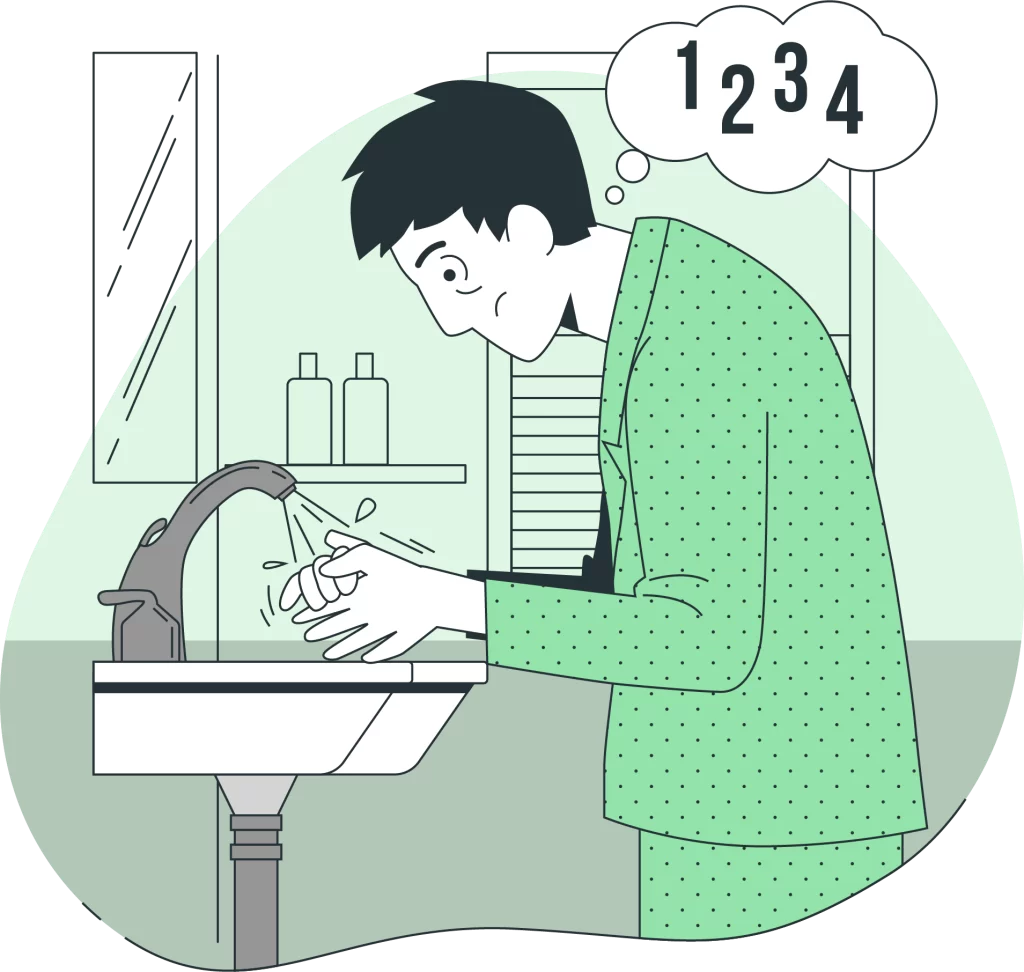
Obsessive-Compulsive Disorder (OCD)
Obsessive-Compulsive Disorder (OCD) is a prevalent and persistent mental health condition characterized by the presence of uncontrollable and recurring thoughts, known as “obsessions,” and repetitive behaviors or actions, referred to as “compulsions.” Individuals with OCD experience an overwhelming urge to perform these compulsions as a response to their obsessive thoughts.
Obsessions: Obsessions are intrusive and distressing thoughts, images, or urges that constantly invade a person’s mind. These thoughts are often irrational, excessive, and provoke significant anxiety or distress.
Compulsions: Compulsions are repetitive behaviors or mental acts that individuals with OCD engage in to alleviate the distress caused by their obsessions. These actions are typically excessive and time-consuming, and they are aimed at preventing a feared event or reducing anxiety.
OCD is a chronic and enduring disorder that can profoundly disrupt a person’s daily life and functioning. These obsessions and compulsions can vary widely, from fears of contamination leading to excessive hand washing, to intrusive thoughts about harm to loved ones resulting in repetitive checking rituals.
Fortunately, there are effective treatments for OCD, including:
Cognitive-Behavioral Therapy (CBT): CBT, particularly Exposure and Response Prevention (ERP), is the primary treatment for OCD. It involves gradually exposing individuals to their feared situations or thoughts while preventing the compulsion, allowing them to learn healthier ways of managing their anxiety.
Medication: Antidepressant medications, such as selective serotonin reuptake inhibitors (SSRIs), are often prescribed to help manage OCD symptoms.
Early intervention and appropriate treatment are essential for individuals with OCD to regain control over their lives and reduce the impact of obsessions and compulsions. OCD is a manageable condition; many individuals can lead fulfilling lives with the right support and therapy.
